Leading Northaven United Methodist Church Pentecost Worship Service with Dr. Kendra Weddle
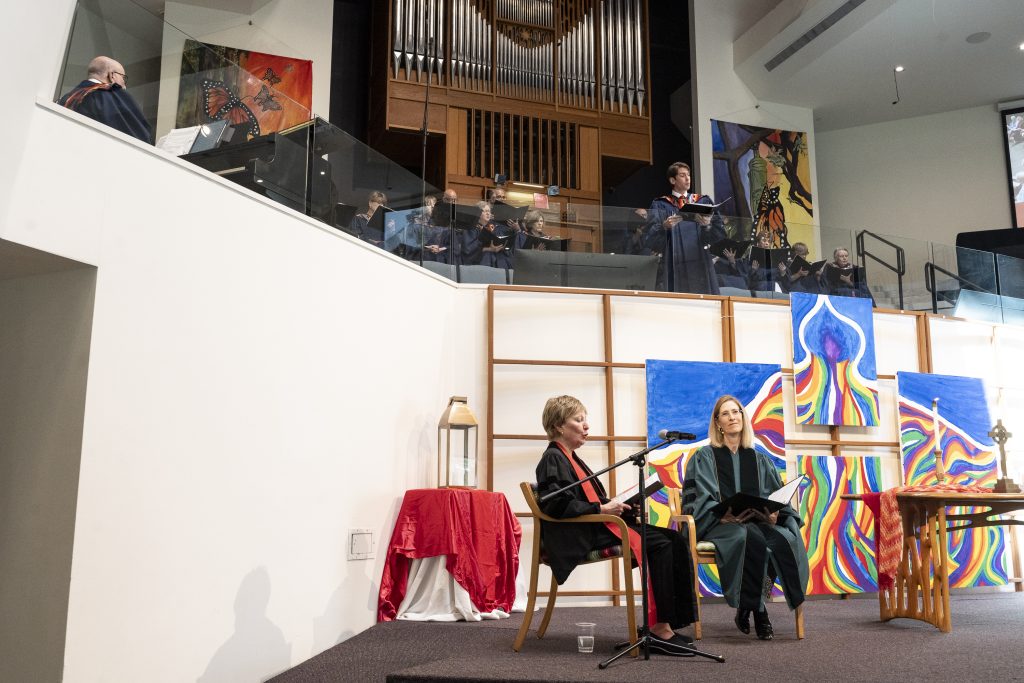
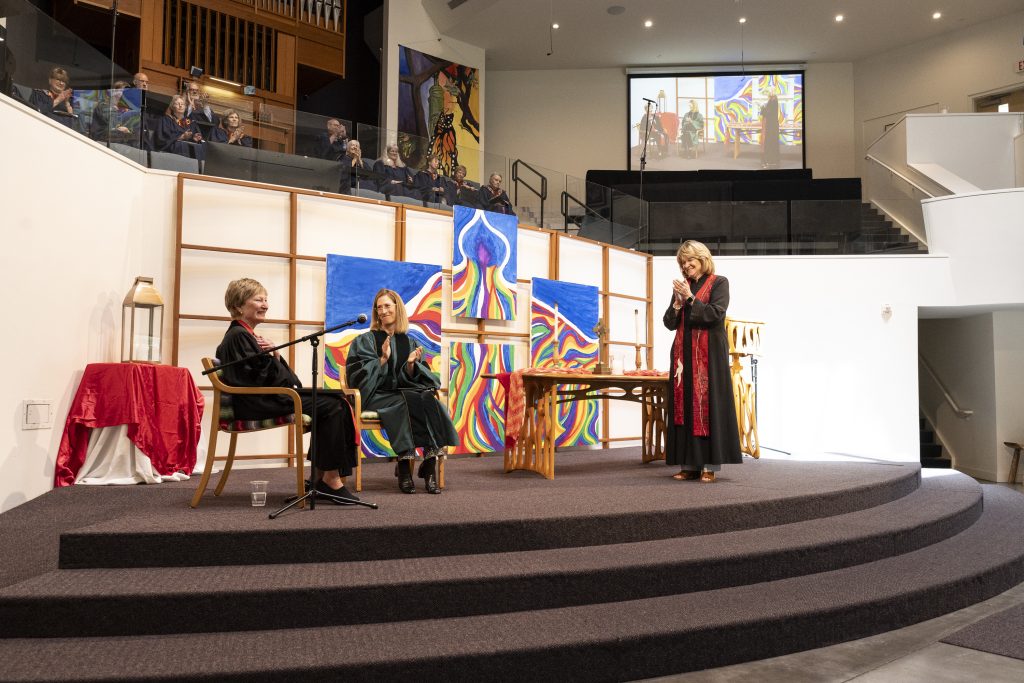
photos by David Clanton
Dr. Kendra Weddle, my good friend and collaborator, and I led the Pentecost Worship Service at Northaven United Methodist Church in Dallas. We did a conversational sermon with songs interspersed to illustrate a variety of biblical divine names and images. It was also a joy to collaborate with Pastor Ann Willett, Director of Worship and Music Nick LaRocca, Director of Children and Youth Jen Hanson, Organist Larry McCain, and Associate Pastor Mike House.
Before the children’s time, Kendra asked me why teaching children expansive language for the Divine was important. She also asked me to explain the divine name Ruah in the song, “Ruah Spirit Made the Children,” Jen was going to teach the children.
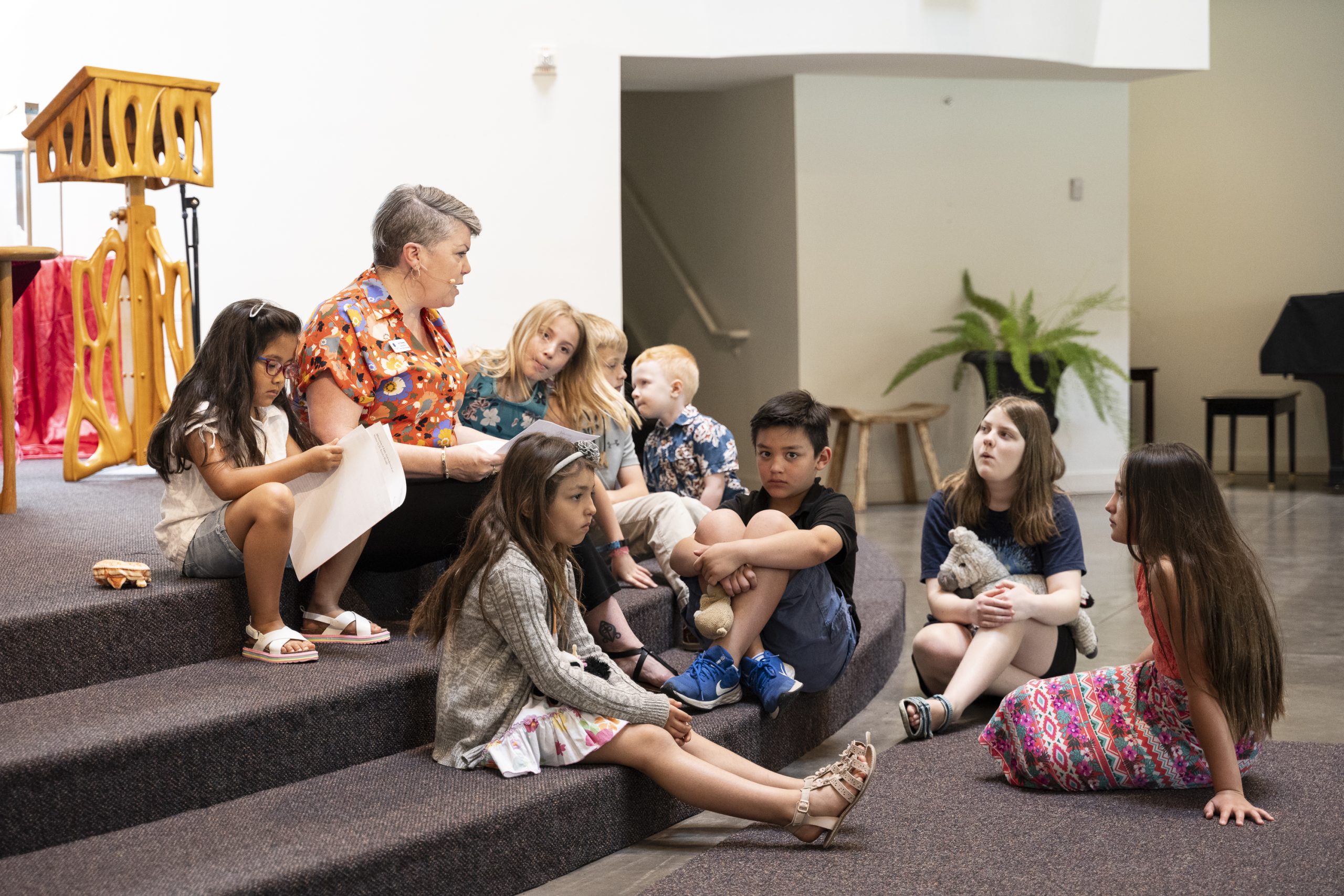
photo by David Clanton
Here is my response:
Some of you may remember that 20 years ago composer Larry E. Schultz and I led children here at Northaven in the musical we created, Imagine God! A Children’s Musical Exploring and Expressing Images of God. In this musical children learn a variety of divine images so they know they’re all equal in the divine image. It was a delightful experience involving some children and adults at Northaven and children from Girls and Boys Clubs.
Earlier I had written In Whose Image? God and Gender and a children’s book that mine Scripture for inclusive divine names and images. It’s important to teach children female, male, and non-binary language for the Divine because what we learn as children becomes instilled in us as adults and often makes us resistant to changes in worship language.
In the Baptist church where I grew up, hymn singing had a prominent place, and I loved singing hymns. But later I discovered the problem with mainly male language for God in the hymns, militaristic language, and language of salvation in the afterlife instead of justice and peacemaking in this life.
Music embeds words in our memories. I can still quote all stanzas of most hymns in the Baptist hymnal I grew up with. Often now I can remember those words better than the new inclusive justice and peace lyrics I’ve written to tunes I love, because the music instilled those problematic words in me as a child. So it’s important for children to sing words to help them know that they are all created in the divine image and to instill theology of gender and racial justice, and peacemaking.
The word Ruah in the song the children are about to learn is the feminine Hebrew word for “Spirit, Breath, and Wind” in the Bible. In the first chapter of Genesis we read that in the beginning the Spirit (Ruah) moved over the waters to give birth to all life. Ruah gives life to us all. She created all the children everywhere and all of us. In the song the children will learn, there’s the line “in Her image dark and fair.” We contribute to racial justice and equity by changing traditional negative symbols of darkness to symbols of both darkness and light as sacred and good. All people, dark-skinned and light-skinned, are created in the divine image.
In the conversational sermon we talked about the meaning and importance of some other divine names, and the congregation and choir sang hymns with these names: Christ-Sophia, El Shaddai, Shekhinah. Here is what we said about El Shaddai.
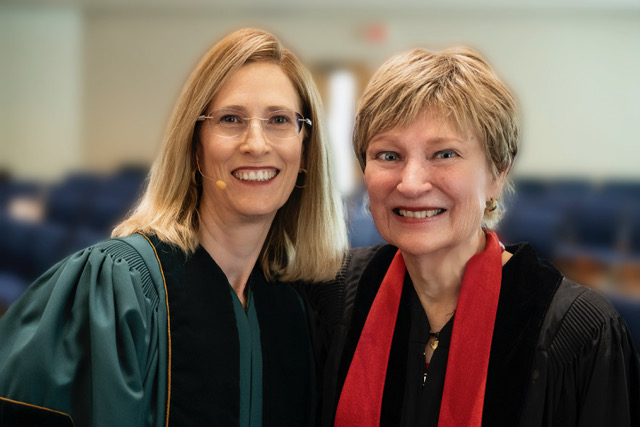
photo by David Clanton
Kendra: There was a point several years ago when I taught a course called Women and the Bible, and I learned that there are multiple ways to translate the Hebrew word El Shaddai. Before that, I thought it simply meant “All- Sufficient One.” But then I learned that it also can be translated “Many Breasted One.” I wondered how it would change my relationship with God if I could take that image seriously. You’ve written about Shaddai. How has this image affected you?
Jann: Kendra, you’ve also written about Shaddai. You have an article in Red Letter Christians about how She has affected your relationship with God. I wrote about Her in my book In Whose Image? God and Gender. El Shaddai is usually translated “God Almighty,” but I learned that the more accurate translation is “the Breasted God.” Experiencing this nurturing Divine Mother brings healing from wounds of sexism and patriarchy. She comforts and sustains me through many challenges. In our next hymn we sing of Shaddai’s healing wounded hearts, calming our fears, bringing hope and comfort.
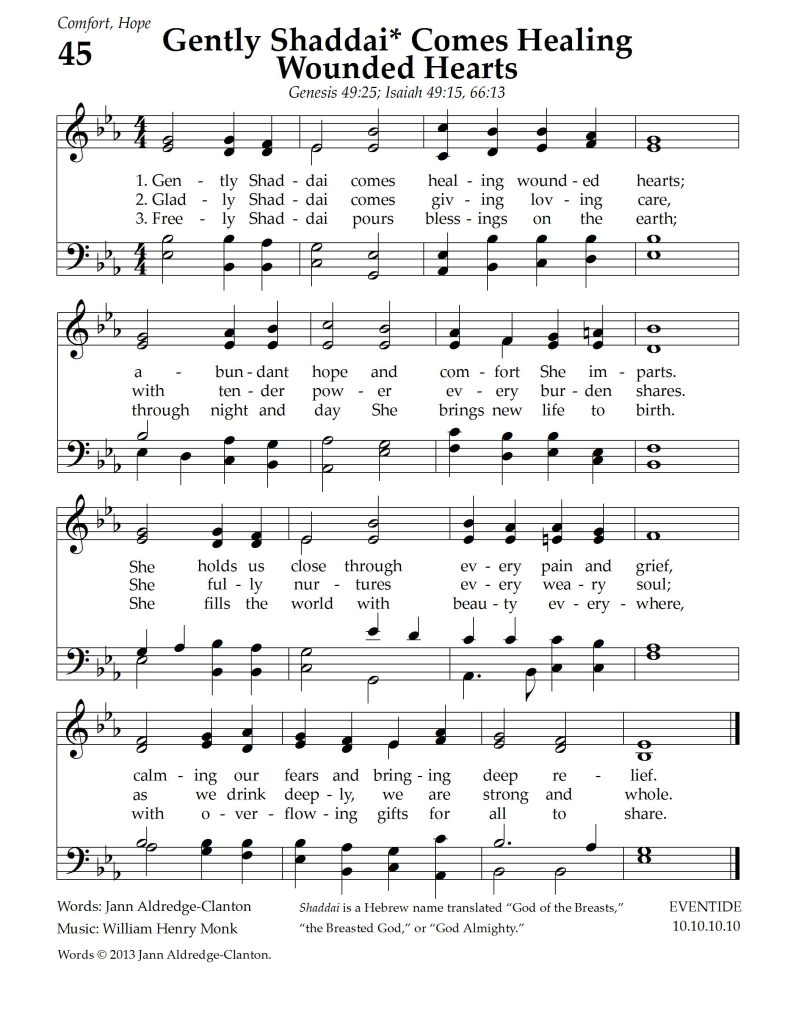
Yes, “Music embeds words in our memories.” So important to have feminine nouns for God as often as masculine.
I like your term “expansive language for God” –hadn’t heard it before.
Thank you, Anne, for your affirming comment.